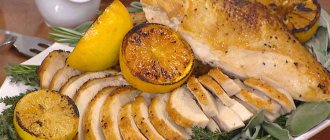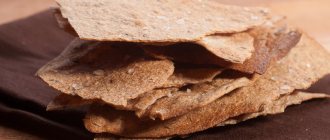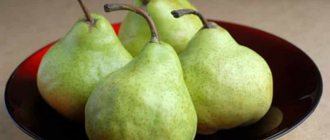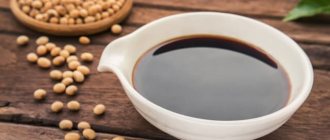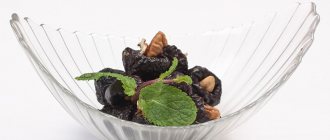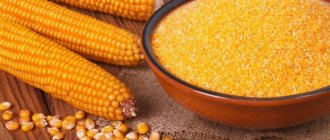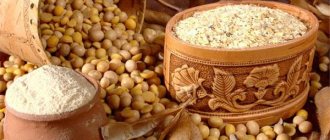Good afternoon, dear readers! Today we will tell you about raisins. Or more precisely about the calorie content of raisins, their benefits and harms.
Raisins are dried grapes. This product has already been known for several thousand years. It is common in many countries. And therefore it is used in different cuisines. It comes in different colors. From light brown to dark brown. It all depends on the color of the grapes. Grapes are grown in warm and fairly dry conditions. Raisins are a good source of energy. It is useful for both adults and children. It is added to dishes and makes delicious drinks. Raisins improve digestion and are useful for hypertension. But what is the calorie content of raisins per 100 grams? We find out this below in the table.
Nutritional and energy value
100 grams of raisins contain 264 kilocalories. To use information for practical purposes, consider the calorie content of the product in glasses and spoons^
| Capacity | Calorie content, kcal |
| Tea spoon | 13,2 |
| Tablespoon | 39,6 |
| Cup | 396 |
The energy value of raisins can vary depending on the variety:
| Variety | Calorie content per 100 g of product |
| Brown | 270-330 kcal |
| Black blue | 250-260 kcal |
| Light green, white seedless | 240-260 kcal |
The product has significant nutritional value. BZHU for 1 tbsp. l. raisins:
- proteins – 0.44 g;
- fats – 0.09 g;
- carbohydrates – 9.9 g.
Raisins: their variety and properties
Indeed, raisins are dried grapes, and this berry is very high in calories. That is why the question arises: “Are the calorie content of dried grapes preserved?” But first things first.
Today there are 4 types of this berry:
- Kishmish, it is also called sabza. These are usually white, small raisins. It has no seeds and is made from light grapes. As for the calorie content of this type, there are approximately 300 units per 100 grams of product. It is believed that the calorie content of this species is the highest compared to all others.
- Korinka, or bidana, bedona, shigana. Small seedless raisins, dark in color. It is dried from black grapes. It is believed that this particular variety brings the greatest benefits to our body. currant, in turn, is also divided into several types: soft and quite sweet, and also slightly dry and not very sweet. The calorie content of raisins with less sugar is 260 kcal per 100 grams of product, while those that contain a little more sweetness are 285 kcal per 100 grams.
- Hermine. A very large and incredibly tasty product. As a rule, you can find no more than 3 seeds in it. It is made from grape varieties such as Lady Fingers and Husayne. If we talk about the possibility of gaining weight from this product, then the calorie content of this variety of raisins reaches 265 units per 100 grams of product.
- An ordinary raisin that does not have a name as such. This product is dark green in color and medium in size and has no more than one seed inside. As for its calorie content, it contains 260 units per 100 grams.
The benefits of this product are only possible if the grapes from which it is made are of high quality. Raisins, as a rule, are made in countries such as Uzbekistan, Turkmenistan, Tajikistan and Central Asia, because these are the ideal climatic and natural conditions for the growth of the best grapes. And besides, these countries already have many years of experience in growing grapes and making raisins.
Composition of the product
Dried grapes are known to be high in the following vitamins:
- A;
- B1 (thiamine);
- B2 (riboflavin);
- PP (nicotinic acid).
The product also includes a number of elements necessary for the full functioning of the body:
| Element | Quantity |
| Calcium | 28 mg |
| Magnesium | 30 mg |
| Potassium | 825 mg |
| Iron | 2.59 mg |
| Zinc | 0.18 mg |
| Silicon | 12 mg |
| Sodium | 8.9 mg |
| Sulfur | 15 mg |
| Phosphorus | 101 mg |
| Chlorine | 9 mg |
| Aluminum | 514.4 mcg |
| Bor | 625 mcg |
| Vanadium | 25 mcg |
| Iodine | 0.8 mcg |
| Cobalt | 8 mcg |
| Lithium | 6.7 mcg |
| Manganese | 300 mcg |
| Copper | 270 mcg |
| Molybdenum | 14 mcg |
| Arsenic | 3 mcg |
| Nickel | 1.6 mcg |
| Tin | 8.5 mcg |
| Rubidium | 176 mcg |
| Selenium | 0.4 mcg |
| Strontium | 723 mcg |
| Thallium | 0.15 mcg |
| Fluorine | 233.9 mcg |
| Chromium | 6.6 mcg |
| Zirconium | 0.9 mcg |
Benefits of black raisins
The properties of dark raisins are varied. It contains a large amount of vitamins B, C, fiber and antioxidants. Among the minerals, the product contains potassium, boron, iron, and magnesium.
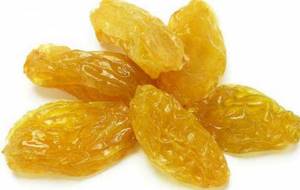
Red grapes help reduce swelling, improve sleep and calm the nervous system. Raisins are rich in glucose, fructose, thiamine and niacin. The high content of oleic acid stops the growth of pathogenic microflora. Phytosubstances have a beneficial effect on the gums.
Daily consumption has a positive effect on the functioning of the heart and lungs. Dark raisins are recommended to be consumed for anemia and exhaustion of the body.
At elevated temperatures, raisin decoction helps remove intoxication products from the body. Hypertensive patients and pregnant women can eat raisins.
Raisins are taken for hypertension and during pregnancy. Potassium, which is rich in dried dark grapes, will help the expectant mother cope with swelling. Daily intake of dried fruits increases the milk supply of a nursing mother.
When following a diet, you need to know how many calories are in dark raisins. This product contains 95% carbohydrates, calorie content is 264 kcal. Raisins are not considered a low-calorie product, so they should not be consumed in large quantities.
Beneficial features
Thanks to its rich composition, the product has the following beneficial properties for the body:
- restoration of the functioning of the cardiovascular system;
- normalization of blood pressure;
- maintaining optimal hemoglobin levels;
- improvement of intestinal motility;
- cleansing the body of toxins and waste;
- normalizing the functioning of the liver;
- reducing the risk of developing constipation;
- fight against cough, bronchitis, colds, headaches;
- providing sedative and diuretic effects;
- relieving irritability;
- prevention of stress, insomnia;
- relieving swelling of internal organs and limbs;
- strengthening the skeletal system;
- prevention of osteoporosis development;
- improved vision;
- stimulation of brain function, strengthening memory;
- destruction of harmful bacteria in the oral cavity;
- reducing the risk of caries, etc.
Raisins are combined with other dried fruits. It can be consumed simultaneously with prunes, dried apricots, etc.
Dark varieties of raisins have a higher potassium content, making them healthier.
For men
Dried grapes are extremely beneficial for the male reproductive system. Consuming 30-50 g of the product per day can save a man from diseases and problems with the body such as:
- erectile disfunction;
- premature ejaculation;
- problems with sexual arousal;
- impotence;
- hormonal imbalances.
Raisins contain components that bring testosterone and estrogen levels to optimal levels, and also take part in spermatogenesis. Thanks to this, doctors recommend that men over 40 take the product once every 2-3 days.
Raisins are useful for men involved in sports or heavy physical work. Thanks to the product, you can quickly accumulate muscle mass and restore strength after completing your workout.
For women
Dried grapes bring the greatest value to women during pregnancy or during pregnancy planning. So, before planning to conceive, a woman needs to strengthen her body, saturate it with energy and nutrients. For this purpose, it is recommended to consume 30 g of raisins per day.
The benefits of the product during gestation are due to its composition:
- Potassium strengthens the heart and vascular system and reduces the risk of swelling.
- With the help of iron, you can avoid the development of anemia.
- Nicotinic and folic acids help prevent pathologies in the fetus in the womb.
Raisins take part in the formation of bone tissue and skeleton of the baby, and provide prevention against nausea and toxicosis. If these symptoms do appear, dried grapes can alleviate or get rid of them.
When consumed, fresh grapes promote increased gas formation, while raisins do not have this property.
If a pregnant woman is overweight, she will either have to completely stop eating or take raisins in the amount recommended by the doctor.
After giving birth, it is recommended to temporarily stop using the product and then resume when the baby is about 2 months old. In this case, it is necessary to monitor the child’s reaction to the product. Dried grapes improve the quality of mother's milk and increase its nutritional value.
The benefits of raisins for women also include eliminating insomnia and stress. Oleic acid helps improve the condition of the skin. Iron and vitamin complex help with increased bleeding and during menopause. The product helps relieve pain during menstruation.
For children
Dried grapes are much sweeter and healthier for a child than candies and other sweets. In the cold season, when there is a risk of catching a cold, you need to eat raisins to prevent and strengthen the immune system. If the disease does occur, then raisins are also consumed for the purpose of treatment.
Dried grapes have a positive effect on the condition of bones and teeth, strengthening them, and also reduces the risk of constipation in children. Children are given raisins only after reaching the age of 1.5-2 years with the permission of the pediatrician; until this time, only a decoction based on the product is allowed for consumption.
Children are recommended to take fresh, matte seedless raisins; during storage they lose a number of important qualities and properties. In this case, it is recommended to cut the dried fruit into pieces if the child has not yet learned to fully swallow food.
Before giving raisins to your baby, you must first pour boiling water over them, soak them in heated water, and then dry them and remove the tails.
Application
Raisins are used in cooking. The first two types are used for making baked goods and various sweets. The second type is most suitable for Easter cakes and muffins. Raisins are often added to meat dishes. Real Uzbek pilaf must certainly have raisins. Large raisins with seeds are added to various drinks, fruit drinks, kvass and dried fruit compote.
Market Analytics
- Black Lives Matter movement: reaction and consequences for the beauty industry
- COVID-19 is changing the rules of the game in the cosmetics market
- Beauty of the future: cosmetic innovations 2021
Convenient search for beauty salons on our website
Beauty salons in Moscow Beauty salons in St. Petersburg Beauty salons in Ekaterinburg Beauty salons in Novosibirsk
Latest blog posts on our website
- Naturecream / Tremella Extract - Snow Mushroom Detox for Skin
- Prostye-sovety / How to visually enlarge your lips with makeup
- Naturecream / Apricot kernel oil for face
- Naturecream / MATRIXYL3000 - the best skin elasticity stimulator
- Naturecream / SPF in Natural Oils
- Naturecream / Geranium (Pelargonium) oil for skin health and beauty
- Prostye-sovety / Save on a beauty salon: procedures that can be done at home
- Naturecream / Growth Factor - brings back youth?
- Oksana-Lezina / 3 effective abdominal exercises from a fitness instructor for beginners
- Prostye-sovety / Making perfect curls at home
Latest forum topics on our website
- Natalya / How to properly make a gelatin mask?
- Mrs._Smith / Badly sunburned! What to do?((
- Ice / Is it necessary to combine fitness classes with a diet?
- Antonova / What can be used for hair loss?
- Radio operatorKat / Who was on a protein diet?
Other articles in this section
| Candied oranges Candied oranges are a tasty and healthy product. To prepare them, orange peels are boiled in concentrated sugar syrup. They are then dried in candied form, resulting in a fragrant and delicious orange treat. |
| Candied melon Melon has been known to people for about four thousand years, and candied fruits from it have existed for the same, or almost as long, time. Melon was a sacred fruit in ancient Egypt and was offered as a sacrifice to the gods. At the same time, melon was grown in Asia. It spread widely in the countries of the East, where it was highly valued for its refreshing taste and ability to quench thirst. In European countries, this berry was also very popular, and it began to be grown in almost all countries. |
| Candied apples Candied apples are an ancient delicacy that is necessarily natural candied fruits, berries or vegetables. |
| Dried peach Peach is a southern fruit tree belonging to the Rosaceae family. China is considered the birthplace of the peach. Valued for its tasty, juicy and aromatic fruits. Peach is used to make jam, compotes, jams, and is also used in dried form. |
| Sun-dried cherries Cherries are one of the most popular stone fruit crops growing in central Europe. To date, more than 200 varieties of domestic and foreign selection have been bred. Cherry berries are small in size, bright red in color and have a pleasant sweet and sour taste. |
| Dried cranberries Scarlet islands of ripe cranberries are spread out in intricate archipelagos across the lowlands of swampy forests. Who is not familiar with this enchanting picture of Russian nature?! Cranberries have been collected in Rus' since time immemorial. It is an inexhaustible source of vitamins, combining anti-inflammatory, bactericidal, and antimicrobial properties. |
| Cashew Cashew occupies a special place in the world of gourmet nuts. It is the fruit of an evergreen tree that originally grew in South America and was eventually transported to Europe. The fruit of the cashew tree consists of two parts: the cashew apple and the nut itself. The nut ripens in a dark, hard shell on top of a juicy, bright apple. The nut shell itself can be dangerous to human skin; contact with it can cause burns and blisters, so cashew nuts are carefully removed from the shell before being sold. They are then thermally treated until the oil completely disappears. |
| Sunflower seeds Sunflower is a plant from the Asteraceae genus. This species has been cultivated for a very long time. Apparently this happened around 3000 BC. in the North America region. Archaeological research suggests that the first users of sunflowers were North American Indians. |
| Pistachios In the Sumakhov family there is a small evergreen plant called pistachio. The plant requires a lot of heat and moisture, so it is most common in tropical latitudes. |
| Pumpkin seeds Pumpkin is a herbaceous annual plant of the Cucurbitaceae family. According to the scientific classification, there are approximately 20 types of cultivated and decorative pumpkins. In some regions of Asia, Africa and South America, wild species of this plant are also found, and in countries with highly developed livestock farming, it is customary to cultivate fodder varieties of pumpkin. Along with watermelon and melon, pumpkin is considered a melon crop; its fruits tend to reach the required degree of maturity during long-term storage. The main value of pumpkin is its juicy pulp and seeds. |
Raisins for weight loss
To combat excess weight, blue and black varieties of raisins are best suited because they have fewer calories. The product usually does not transfer to fat folds, which is due to the content of only natural sugars in the form of glucose and fructose. Dietary fiber swells inside the body, increasing in volume, resulting in a faster feeling of fullness. Fiber also intensifies the intestinal cleansing process, causing the body to clear toxins faster.
The calorie content of raisins is not as high as that of confectionery products. Small (about 20 g) portions of the product can suppress the feeling of hunger, preventing overeating. Moreover, dried grapes contain ingredients that can break down fats.
During diets, raisins can replace foods excluded from the diet that contain chemical elements important for the body. During the day, those losing weight are recommended to consume raisin-based compote instead of snacks. Drink raisin tea at night to prevent hungry insomnia.
For the diet to be effective, it is necessary to comply with the consumption of dried grapes. An increase in the daily dosage can provoke a sharp increase in body weight.
How many calories are in raisins: how to eat dried fruits?
Raisins, whose calorie content is quite high, cannot be classified as a dietary product, but these dried fruits help normalize metabolic processes. The fiber contained in raisins helps to gently cleanse the stomach and intestines, removing toxins. Microelements contained in raisins, the calorie content of which can be neglected even during a diet, help improve intestinal motility. Raisins, whose calorie content is higher than other dried fruits, are a necessary component of any diet, providing:
- Prolonged feeling of fullness. Raisins, whose calorie content eliminates the feeling of hunger, are recommended to be consumed in small portions during snacks between main meals;
- Balance of vitamins and microelements in case of deficiency of their intake from food;
- Cleansing the body;
- Accelerating the metabolism of fat deposits in the body.
Daily norm
A healthy adult is recommended to consume 50-70 g of raisins per day, dividing this amount into two doses.
However, such a norm is not mandatory for everyone. Depending on age, lifestyle, body characteristics and other factors, it can vary. If you have any chronic diseases, it is recommended to consult a qualified specialist.
For children, the daily intake of raisins is limited to one tablespoon.
How to choose and store correctly
There are several ways to naturally dry grapes:
- Drying grapes in the shade is called soyagi. This procedure is quite lengthy. This dried fruit looks more attractive and has a higher cost.
- Drying oftobi - drying grapes in the sun. This method takes about 5 days and the dried fruit obtained as a result of this drying method is tougher.
To choose a good and high-quality dried fruit, you need to follow certain rules:
- Good raisins are matte, wrinkled, fleshy.
- Should not be excessively hard or soft. This indicates poor drying or poor quality transportation.
- You can throw a few berries and listen to it so that it falls quite quietly.
- This dried fruit has a bitter or sour taste and is not worth buying.
- High-quality dried grapes must have a stem. This means that the berries have not been chemically treated.
- If the raisins are white and transparent, then they are guaranteed to have been treated with chemicals. Because the.
- Raisins should be stored in a glass or plastic container with a tightly closed lid at room temperature for up to four months. Refrigerate for up to six months.
Contraindications
There are a number of diseases and conditions in which the use of raisins is prohibited, including:
- diabetes mellitus types 1 and 2;
- individual intolerance, allergic reactions;
- peptic ulcer of the stomach and duodenum;
- enterocolitis;
- cardiovascular failure;
- disorders of the digestive process;
- obesity;
- cholelithiasis;
- mouth ulcers;
- tuberculosis.
Raisins contain 8 times more sugar than fresh grapes. In view of this, even in the absence of contraindications, the product should not be abused so as not to cause harm to health.
The benefits of light raisins
The composition of light and dark raisins is similar, but they have some differences. What are the benefits of light raisins:
- relieves reporting and has a diuretic effect;
- reduces irritability;
- helps restore strength;
- reduces signs of anemia;
- improves the condition of teeth and gums;
- normalizes heart function;
- used for colds as an adjuvant;
- cleanses the liver;
- strengthens the immune system;
- improves skin condition;
- normalizes the functioning of the nervous system;
- can be used for vegetative-vascular dystonia;
- regulates acid-base balance.
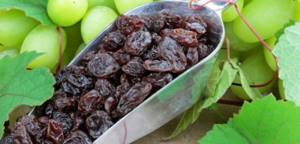
Raisins can be substituted for sweets. Fructose and glucose are better absorbed by the body than sugar, which is found in artificial sweets. This advice is especially relevant for children and people trying to lose weight.
Recipes for preparing raisins during a diet
We bring to your attention several recipes from this incredibly tasty and healthy delicacy.
Decoction for cleansing the body
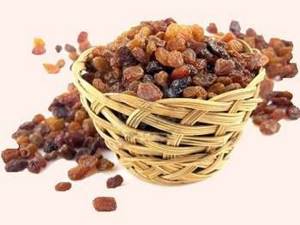
To prepare we will need:
- senna grass – 0.2 kg;
- white raisins – 0.2 kg;
- Rose hip-based holosas – 300 ml.
Preparation: pour one liter of boiling water over the senna and let it brew for an hour. Separately, steam the raisins with a liter of boiling water and leave for an hour. Then mix both infusions and add Holosas.
You need to take this decoction at night, 100 ml. As for storing it, the refrigerator is perfect for this. It is advisable to “cleanse” the body in this way no more than once every six months.
Weightloss remedy
To prepare we will need:
- prunes – 0.4 kg;
- white raisins – 0.1 kg;
- dried apricots – 0.1 kg;
- rosehip – 0.2 kg;
- senna grass – 0.1 kg;
- honey (preferably uncandied) – 3 tbsp. spoons.
Preparation: Using a knife or food processor, chop all ingredients. Then mix everything thoroughly and add honey, mix again. You should consume this mixture in the amount of one tablespoon in the morning, before your first meal, and in the evening, before you go to bed to rest.

